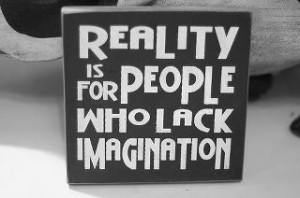 WE WELCOME ONLY WHAT WE CAN COPE WITH.
WE WELCOME ONLY WHAT WE CAN COPE WITH.
This may be the most important thing you will ever learn or know about Human Nature: “We welcome only what we can cope with.”
George Santayana said “All living souls welcome whatever they are ready to cope with; all else they ignore, or pronounce to be monstrous and wrong, or deny to be possible.”
We mistakenly identify with our beliefs so much that we think our beliefs are part of us. They are not. Beliefs are indoctrinations, usually from sources outside ourselves that were introduced from a person holding a place of power or “power-over” us. We acclimate to many beliefs without examining them for their truth, rationality or usefulness. When beliefs are bestowed from a place of power, especially when we are children, we accept them as without examination because then come from someone we trust or see as powerful.
As an example, ask yourself: “How did I come to my beliefs as/in ___________________? (name your religion) Christian, Catholic, Pentecostal, Lutheran, Buddhism, Hinduism, Jewish, Moslem, Quaker, Mormon, Jainism, Animism, etc.
Think for a moment “How did I come to be that religion?” Likely it is a religion that you inherited from parents or other authority figures and never questioned. You likely accepted it to be truth because others said it was true. With initial indoctrination and repeated indoctrinations based on doctrine and dogma of your family’s religion, you may have come to accept it as your religion and the final authority on your spirituality. You may not have questioned the belief(s) of your faith. It may be a belief that you “inherited” from parents or authority figures.
The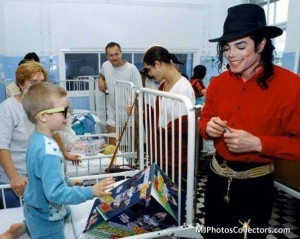 re are other beliefs that are just as strong and assumed to be true while they go unexamined. They may have been instilled, taught, dictated, indoctrinated, forced or even appear to be “chosen.” As a child you haven’t the maturity in your brain to question if beliefs are truth or if they work for you. It’s a kind of blind acceptance of what parents, authority figures or those you relied on for sustenance or survival required of you and since they represented your continuation of existence in some way, you accepted their beliefs based on fear that you might lose your support if you rejected their beliefs. Children in particular are very vulnerable to beliefs and indoctrination.
re are other beliefs that are just as strong and assumed to be true while they go unexamined. They may have been instilled, taught, dictated, indoctrinated, forced or even appear to be “chosen.” As a child you haven’t the maturity in your brain to question if beliefs are truth or if they work for you. It’s a kind of blind acceptance of what parents, authority figures or those you relied on for sustenance or survival required of you and since they represented your continuation of existence in some way, you accepted their beliefs based on fear that you might lose your support if you rejected their beliefs. Children in particular are very vulnerable to beliefs and indoctrination.
Another way you inherit beliefs is through cultural or tribal doctrines, traditions and mores. In your family touch may be easy and traditional but in other families, it is forbidden territory. Some families eschew violence and some accept and even embrace it. Some parents allow their children to watch most of what is on TV and some monitor their children’s viewing habits. Many children incorporate the beliefs demonstrated on television because that is what they are consuming and it becomes their reality. If the content of television is perpetually violent, children come to believe the world is not a safe place and that they must protect themselves at all times. That sets up a “them against me/us” scenario and instills fear in a child.
If you grew up in the South in the United States, you may be more predisposed to racism because people may still cling to the beliefs that accompany racism such as inferiority or predisposition to violence or savagery. You may think black people and Indians are different somehow from whites and your behavior may reflect these beliefs. There may be beliefs that are invisible (most are) because we are believing through them while they are not evident to us. We may not even realize they’re there.
There are many kinds of cultures. There is a societal culture with the tribal mores of that particular band of people. Nudity may be perfectly normal and acceptable in other cultures while being seen as vulgar in yours. In some cultures women are seen as possessions and must obey the dominating beliefs that surround the inferiority of women– no voice, no vote, no power. In some cultures women are seen as leadership and authority. In some cultures it is OK to dance and some it’s not. In some cultures it is traditional to pray openly and in others prayer is traditionally reserved for private times or in gatherings or locations specifically for worship.
No matter your upbringing or culture or social status there are “rules” that apply to you based on prevailing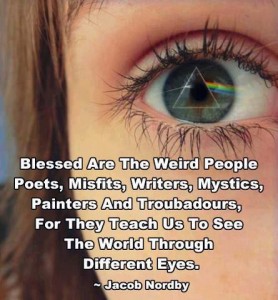 beliefs. There are even organizational cultures which determine the climate of the workplace. Sometimes they are written and sometimes not. Some dare not be spoken about but are completely understood by all.
beliefs. There are even organizational cultures which determine the climate of the workplace. Sometimes they are written and sometimes not. Some dare not be spoken about but are completely understood by all.
The bottom line is that beliefs, however they are acquired, are layered over a once clear mind and body free of any and all beliefs, traditions, mores or rules. A mind is born free of indoctrination– a clear, bright empty vessel. A child’s mind is pure and undisciplined and free of opinions and beliefs. Each child that’s born is completely unique and empty and interested only in being-ness with its extraordinary and fascinating lure to a mind completely unfettered by limiting beliefs.
Beliefs are almost immediately layered over this pure and untouched being recently come from the womb of physical embrace, weightless suspension, and clear and carefree existence. Beliefs are like cellophane that are layered on one after another that eventually renders the clear being changed, limited and defined. It’s these definitions of “I am” which get us into trouble:
“I am less than you” … “more than you.”
“I am worthy” … “I am unworthy.”
“Life is unique and precious” … “life is meaningless/lives are meaningless.”
“All people are equally deserving” … “I deserve more/they deserve less.”
“Life is an adventure” … “life is difficult”
“We are all one/together” … “every man for himself.”
“My female body is holy” … “my female body belongs to others to exploit.”
“We are all brothers” … “get what you can in any way necessary.”
“Tribe/family/society is important” … “I am more important.”
“Kindness, empathy, care and compassion are the prime tenets of society” … “wealth, status, power are the prime tenets of society”
“My ‘tribe’ is one of many groups and kinds of peoples” … “my tribe is superior, more deserving, stronger, more powerful”
“The Earth is a beautiful and abundant source/being” … “man has dominion over the Earth- to take whatever he wants for his survival or pleasure”
As we look at just a few beliefs, we realize that much of how things are structured and how they work come from held beliefs. And we know beliefs are an overlay on reality. That might mean that to fundamentally change a painful, non-nourishing and threatening reality, we may have to change fundamental beliefs.
We have all been watching the events in Ferguson, Missouri and we can see that much of the behavior that accompanies that circumstance is based on long-held beliefs. The police believe they are superior humans with certain rights that allow them to violate the rights of others. Part of the citizenry of Ferguson find that the status quo is unfair and is not working for them.
In our heart-of-hearts, we know what is life-giving and what is death dealing. Our inner compass knows if we would only listen to that intuition or voice of reason. Unfortunately we argue and override that compass and end up in trouble.
“WE WELCOME ONLY WHAT WE CAN COPE WITH.”
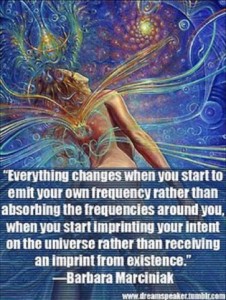 If something challenges our prevailing beliefs or doesn’t comport with our reality, we can’t accept it. The human ego likes to think itself in charge and whatever threatens the ego is interpreted as life threatening. Some of us can’t cope with being challenged about our beliefs because of our ego. Some of us don’t like to be “wrong.” Some of us find comfort in predictability because it feels safer than uncertainty.
If something challenges our prevailing beliefs or doesn’t comport with our reality, we can’t accept it. The human ego likes to think itself in charge and whatever threatens the ego is interpreted as life threatening. Some of us can’t cope with being challenged about our beliefs because of our ego. Some of us don’t like to be “wrong.” Some of us find comfort in predictability because it feels safer than uncertainty.
So when confronted with something that shakes the foundational beliefs that we have built our lives upon, we balk. We can’t cope with having the structural beliefs that form the foundation of our lives threatened. When our beliefs are threatened, we read it as a threat to our very existence. We also in our heart-of-hearts want to believe in people, in humanity but we don’t because we couldn’t cope with being let down so we relegate all humanity to the status of “other” so that we don’t ever have to confront our disappointment.
The opposite is waiting– when we develop our own goodness (empathy, compassion, nurturing, embracing, allowing the humanity of all including self, kindness, forgiveness, equality, humanness) we attract that same vibe or frequency to ourselves and we open the door to a comfort of shared humanity and new collective reality. In our heart-of-hearts we know this. And in that same place, we know we are not living that way.
So that piece of human nature (“We welcome only what we can cope with”) explains a lot. It explains why Michael Joe Jackson threatened so many people. It explains why some people found it necessary to dismantle his power and silence his voice through the “guerilla decontextualization” that Aberjhani so eloquently defines and conveniently provides us with– that describes the human impulse to destroy a human being. Guerilla decontextualization is a way to fiercely reject what goes against the indoctrinated and ingrained beliefs or belief systems constructed to form the foundation of (“each” and the “collective”) life and reality. It’s a way to use transference or projection that lands on the being who represents the irritant in the first place. The more something (someone) irritates and threatens the coping field (reality) and resources (tools for coping) of the human, the more murderous the impulse to retaliate.
In Michael’s case, the tabloids provided a platform and made it easy.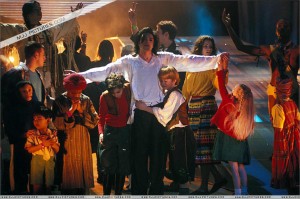
Nobody wants to admit they’ve been doing it wrong; they sure don’t want the mistake pointed out. They don’t take kindly to someone coming along who rattles their carefully constructed reality. And if they’ve been wrong all along, they know that other thing about human nature– forgiveness isn’t considered natural and easy and is awfully hard to come by.
What a “shame.”
What if you called a man a “monster” because you weren’t prepared to cope with him or his Avant garde`ideas? With the challenges he brought? With the failings and feelings he evoked? What if you discovered that in your fear and human weakness, you called someone a “monster” who was really a good man and a shining soul? Is the shame of your realization enough punishment? Is punishment necessary for those who confess egregious mistakes? What if forgiveness was generously given instead of rare? Would people confess how their inability to cope dictated their beliefs and actions if they knew they would be forgiven?
Could you cope with such confessions?
“People welcome (embrace) what they can cope with. All else they ignore, or pronounce to be monstrous and wrong, or deny to be possible…

One Comment
Dear Reverend Barbara, you are so right! Several people I know, most of whom are cleverer and more academically qualified than I, seem to have neither the will nor the capability to think and question…
(whatever the subject).
For them it is so much easier to run with the herd, to follow the crowd, while knee-jerk reactions and opinions require no effort.. especially when everyone around you “honours” you with their approval.
No wonder Michael Jackson was such a threat to so many… his “human nature” was the very opposite. Constantly challenging, examining and questioning, he tried to be the best possible example of what every human being should aspire to be. In doing so he alienated many cocooned in their personal bubbles, with their lazy and entrenched views of how life should be lived.
Who was this upstart with his ridiculous ideas? There just had to be an ulterior motive. No.. actually there wasn’t, unless of course your mind is so closed that trying to fix a broken world and it’s all too obvious problems is the stuff of comedy. Or you believe that the word ” love” can only have one meaning (nudge, nudge, wink, wink!)
The ludicrous thing is that (I feel) so many people failed to realise that because of his extraordinary lif, and the things he was witness to first hand, he was better placed than most to have a view of how the world functioned ( or mal-functioned). He recognised that we all needed to re-examine some of our beliefs. “He looked around him, saw what was broken, and spent his life trying to fix it “. In doing so his motives were frequently scrutinized with skepticism and worse, and there were plenty determined to prevent him from rocking the boat
(He was) always authentic, always consistent, never mediocre.
Thankyou for another thought-provoking post, and yes.. “we only welcome what we can cope with…”.. so true